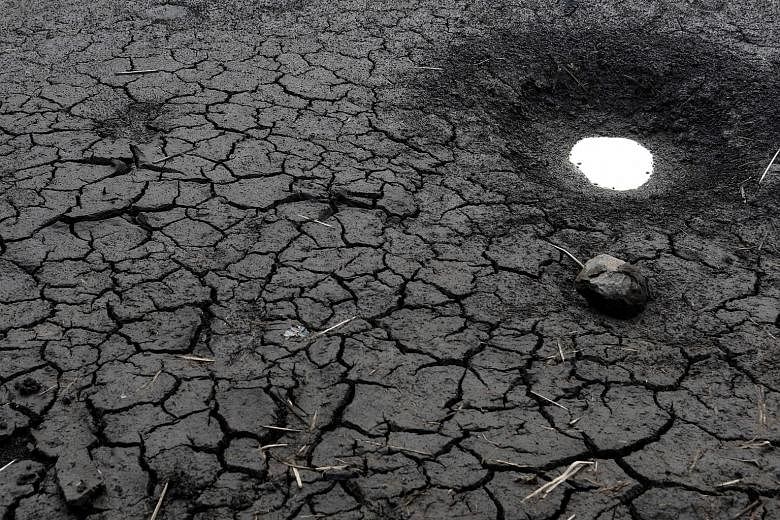WASHINGTON • Global temperatures could exceed 1.5 deg C above their pre-industrial levels within the next 15 years, according to a new scientific study, crossing the first threshold under the Paris climate agreement and placing the world at a potentially dangerous level of climate change.
The report comes as climate agreement participants are watching the United States - where the Trump administration is debating whether to withdraw from the Paris accord - and as scientists with the Intergovernmental Panel on Climate Change (IPCC) are working on a special report about the 1.5-degree goal and the consequences of overshooting it.
That IPCC's upcoming special report and the rising urgency to minimise global warming were one impetus for the study, co-author Benjamin Henley, a research fellow at the University of Melbourne in Australia, told the Washington Post.
"We are working on a number of scientific avenues to help inform that report."
The study focuses on a natural planetary system known as the Interdecadal Pacific Oscillation, or IPO (or the Pacific Decadal Oscillation). It is an alternating pattern of ocean temperatures, phases of which can last a decade or longer, that shifts periodically between warm and cool phases, helping to drive temperature and weather patterns all over the world.
During cool, or "negative", phases, tropical regions of the Pacific Ocean tend to be colder, and the global mean temperature is lower.
The phenomenon is believed to be a natural form of climate variability unrelated to human-caused climate change, although it does have the potential to influence the progression of global warming.
For most of the 2000s, the IPO has been in a negative phase, and scientists think its cooling effect has helped to slightly offset the effect of climate change, an explanation for the so-called global warming pause in the first part of the 21st century.
As multiple studies point out, this temporary slowdown is consistent with the overall long-term warming trend and in no way suggests human-induced climate change is not occurring. Rather, this natural variation in the global climate helped to slightly blunt those effects.
Many scientists believe the planet is now transitioning back into a positive, or warm, phase. This means we could reach milestone temperature thresholds faster than we would if the IPO had remained in its negative phase.
That is the conclusion of the new study, written by Drs Henley and Andrew King of the University of Melbourne. Using model projections of future climate warming under a business-as-usual scenario, they suggest that the Earth could hit the 1.5-degree temperature threshold as early as 2025, while the continuation of the negative phase probably would delay this event until after 2030.
The paper underscores a point that many climate scientists have been warning about: that we are increasingly likely to blow past our climate goals, and soon. And with a potential US withdrawal from the Paris accord looming, this scenario is now more likely than ever.
WASHINGTON POST

